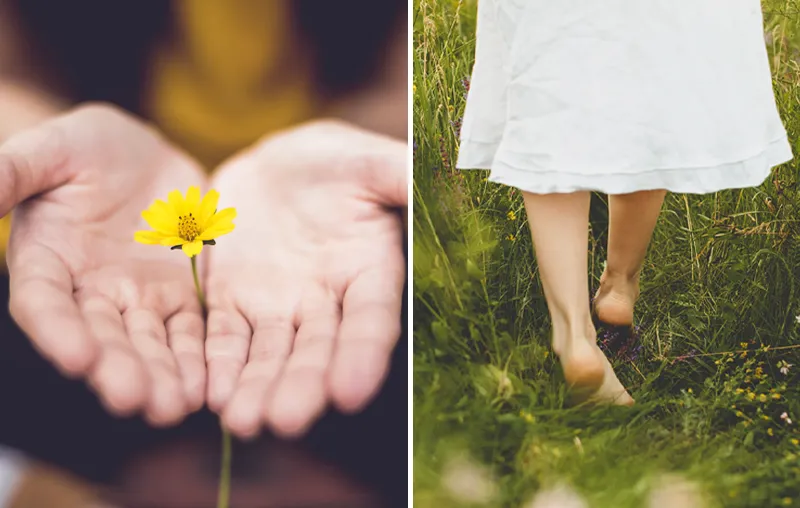What is meant by naturalness and what exactly does it mean to be natural? If you're looking for answers to these questions, you've come to the right place! In our fast-paced world, more and more people are longing for simplicity, authenticity and a return to the natural - partly because we have become increasingly distanced from nature for a variety of reasons.
For example, we use smartphones to find our way around, buy animal meat packaged in plastic boxes, have cosmetic surgery, ride an electric escalator and apply make-up - all things that are not natural in themselves. So how natural are we still living? Is it questionable when we do unnatural things? And why do many people strive to live more naturally?
In this article, I would like to provide you with answers and explain what exactly is meant by naturalness. You'll also find out what simple tips you can use to make your everyday life a little more natural. Let's go!
Here you can find a short overview in advance:
Definition: What is meant by naturalness?
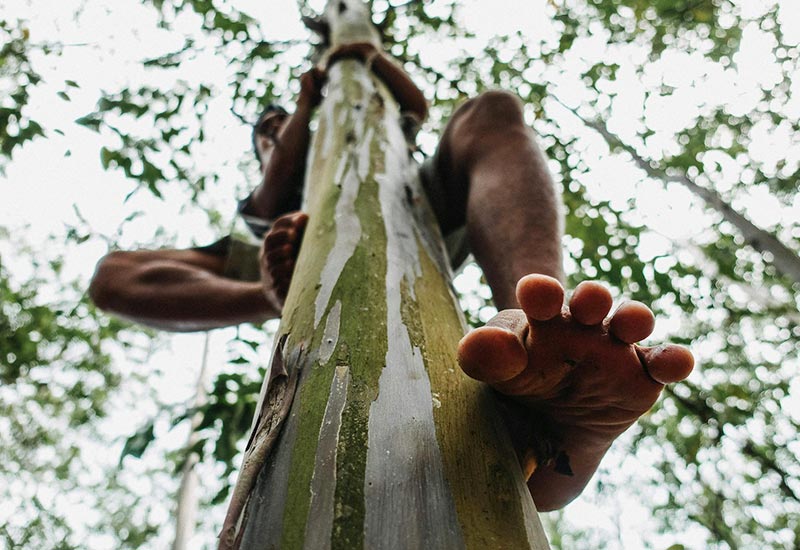
Naturalness is above all a virtue and positive, human character trait. Who is considered natural is open, genuine and undisguised. So someone who is natural is not artificial, but the way he or she really is. For example, an honest skin or a natural beauty.
However, naturalness is not only understood as a concept of value, but also that something is as it occurs normally and without human/artificial influence - i.e. naturally - in our world. For example, an untouched primeval forest.
Living naturally also means striving for a way of life that as well as practically possible, in harmony with our nature takes place. However, everyone has their own individual definition in this regard. One person avoids artificial additives in food, for example, and another avoids using make-up altogether.
However, the aim is often also to conserve natural resources and Minimize harmful environmental influences through your own everyday behavior. After all, we humans are part of nature - but we are also the only living beings that change it with serious consequences for all life on earth.1
Advantages: What are the benefits of being and living natural?
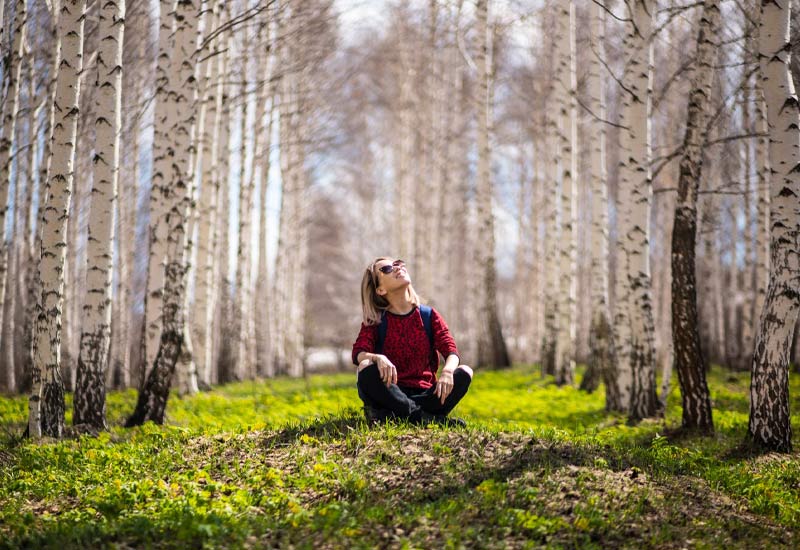
In order to question how naturally we (have to) live, we should of course also deal with this, what opportunities a natural way of life offers. Here I present the expected benefits and the positive impact:
- Stay healthy: By favoring natural, unprocessed foods and products without artificial ingredients, you promote your physical health and also a healthy lifestyle. healthy lifestyle.
- Be happy and contentAwareness of how to act in a way that is close to nature and promotes health increases your personal well-being and quality of life. Finally it makes you happy to do good deeds. Doing something that is against one's own nature or human nature, on the other hand, can lead to cognitive dissonance and extremely unpleasant, stressful contradictions between your own thoughts and actions.
- Protect environment: Your most natural way of life also reduces your ecological footprint. Quite simply because you use fewer resources and avoid large amounts of waste. In most cases, unnaturalness is what makes the Environmental degradation accelerated. Only around 2.8 percent of the planet's land surface is now untouched by humans2which is why living as naturally as possible on our part is a great opportunity for nature.
- Respecting future generationsLiving naturally emphasizes and promotes sustainable, thoughtful and future-oriented actions that benefit not only yourself, but also your children and grandchildren. This foresight and solidarity deserves respect and allows you to live up to your role model function.
Can you think of any other benefits of a natural lifestyle? Then I look forward to your comment under this post!
Background: To what extent is naturalness often used as an argument in discussions?

My main motive for writing this article is that in everyday conversations I hear time and again that people use the "nature argument" in a way that is advantageous to them at that particular moment.
This is particularly prevalent in discussions about making greener and healthier choices. However, since mostly contradictions it is much more expedient to question more closely what is natural and what is not - and what role this plays at all.
To make this a little clearer, I have given you two examples of Arguments against a vegan diet sustainable lifestyle listed and invalidated that relate to our nature.
"Eating meat is natural."
Again and again I hear that we humans are carnivores by nature and that it is therefore unnatural to only eat a plant-based diet. And if our ancestors hadn't eaten meat, we would probably no longer exist - so far so good.
But the Structure of our body is much more similar to that of herbivorous animals than that of carnivores. We have no claws and also no fangsto catch and eat animals.
We also have a very long intestinewhich is ideally suited to the digestion of plants - whereas carnivores in nature have a short intestine, as meat rots quickly. Accordingly, there are also many diet-related diseasesassociated with the consumption of animal meat.
And We lack the instinct to hunt and kill an animal. We are not hungry when we see an animal in nature, we rather perceive it as vulnerable, beautiful and worthy of protection - and intervene if someone treats an animal (whether dog, cat, chicken or pig) badly.
Tip: Whether that Eating meat is really natural and veganism is unnatural I have examined this in more detail in the linked article.
"Lions also eat meat."
We are not lions, we are people. We have a moral compass and are not dependent on eating meat. Lions do not have this choice, they must hunt to survive.
Accordingly, one can not simply point to a certain behavior in nature to justify a certain ethical behavior. Lions, for example, kill their offspring and smell their rumps to greet each other - natural things that we do not consider worth imitating.
Challenges: Is it even possible to be and live completely naturally?
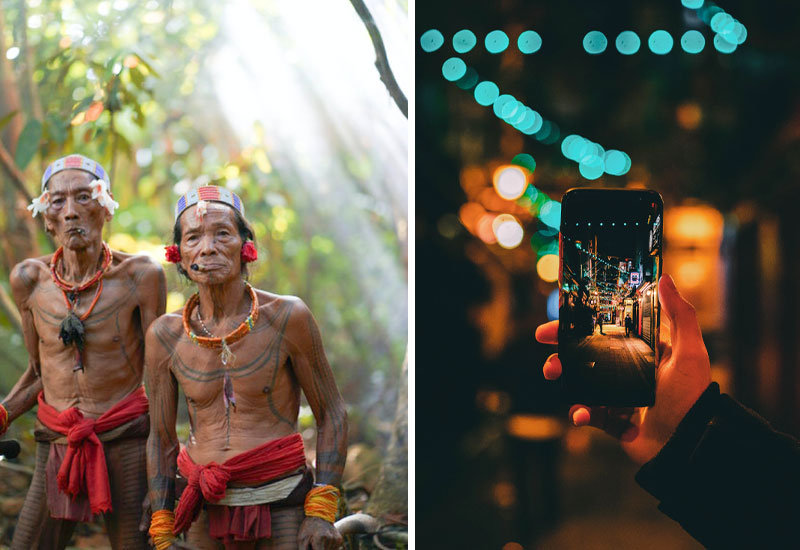
So you can't cherry-pick anything from nature and use it to justify your own actions. Especially not if we end up harming the people who really do live as naturally as possible these days: indigenous peoples. they are sold for the cultivation of animal feed and the production of pastureland.
Naturalness, or being natural, is therefore much more complexeven if, at first glance, we only need oxygen, water, food, sleep, a pleasant climate and exercise to stay healthy and survive.
But in our civilized society today, it is no longer about survival. We are surrounded by artificial materials, chemicals and technological influences on a daily basis. And run with Smartphone through the neighborhood, drive Car with navigation systemsmoke toxic Cigarettesuse Escalators and Elevators. Untouched (human) nature is no longer within our grasp.
Living a completely natural life in this day and age is therefore basically no longer possible. Simply because we have gotten out of the habit. Partly unnatural behavior has become Habit and this in turn ensures that we perceive it as natural or self-evident.
Natural way of life VS civilization
Here are some examples of Things that make the project even more difficult and are to be regarded as challenges:
- Availability: Naturalness is made more difficult in a sealed, urban environment. For example, because the Air Pollution is higher in the city than in the countryside.
- Accessibility: Not everyone can afford natural, organic food from organic farming and therefore has to fall back on processed, conventional goods.
- Need for information: Many people do not get the information that would make their lives more natural and healthier, or only get it too late. In addition, time has to be sacrificed to deal with it.
- Convenience: Change is often very difficult for us humans. Accordingly, it is difficult, for example, to suddenly stop eating meat after many decades. The (easier) path of least resistance is to leave everything as it is.
Assessment: Why is it good that we don't live completely naturally?
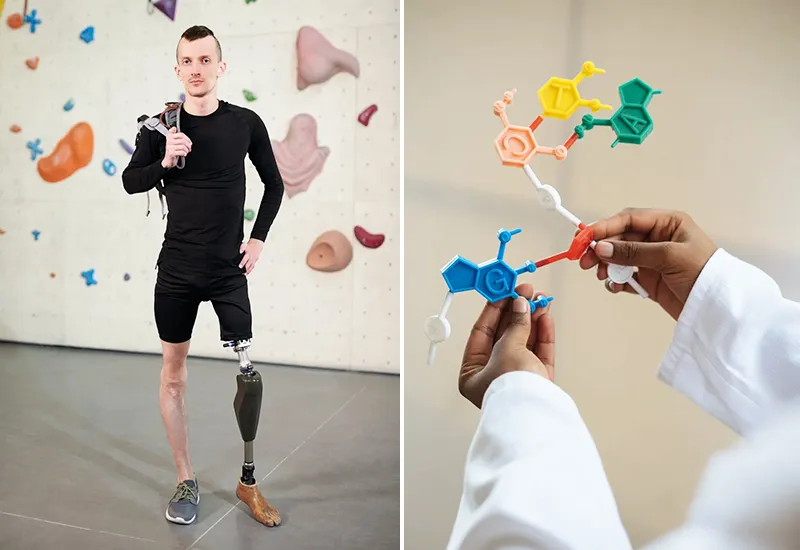
There really are countless things that make it almost impossible for us to lead an absolutely natural life. But fortunately, we don't have to. Because unnatural things are often bad, but in many cases also absolutely sensible and useful.
Prostheses made of carbon or plastic, for example, are not natural - but they ensure, among other things, that people can walk again and continue living as naturally as possible. Thick jackets protect us from the cold, houses offer us shelter, irrigation systems increase agricultural yields - there are an incredible number of positive examples. If we lived completely naturally, we would ultimately be able to treat diseases with difficulty or not at all.
Fortunately, we do not live no longer in the Stone Age, but in a regulated civilizationwhere the unnatural can save lives and make everyday life more pleasant.
But we have to understand that we humans belong to nature, that we are dependent on it - and that we change it through our behavior. Accordingly, it is beneficial to at least live more naturally and not accept everything that makes your everyday life more comfortable directly and unfiltered.
5 tips: How can you live more naturally again?
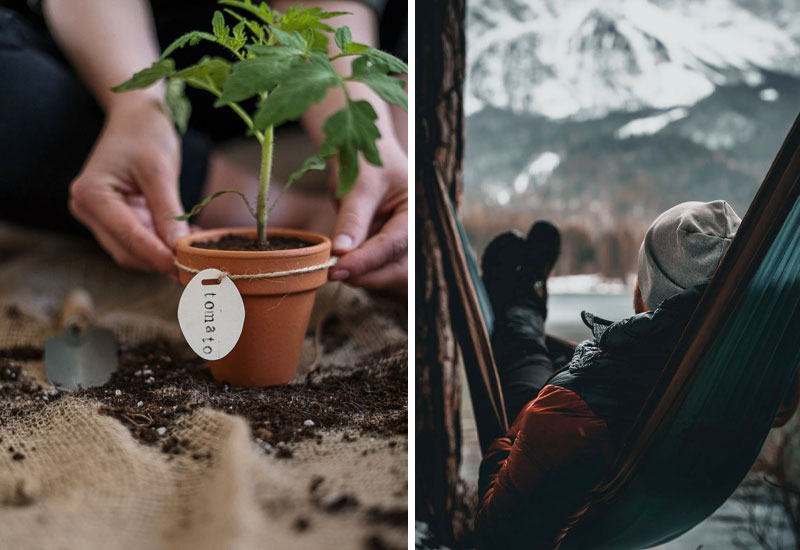
It is therefore both impossible and unnecessary to be completely natural. However, this is obviously not a good excuse to simply leave everything as it is. Instead, we should try to make our everyday lives at least a little more natural again. in harmony with nature to bring.
Some ideas and tipsthat you could put into practice have been compiled here as a little inspiration:
- A vegan diet: You hate cruelty to animals and want the Save rainforest? Then try going without meat, eggs and milk - and consume purely plant-based foods and animal-free products. Cow's milk may be natural - but drinking the milk of another species is definitely not natural. Tip: Online course Becoming vegan made easy*
- Plan time in and with nature: Try to carve out regular slots in your daily routine for me-time outdoors. For example, go for walks in the park or in the forest, create a sustainable, species-rich garden and grow my own fruit and vegetables. The Time in nature is healthyof course and will do you good!
- Prefer walking or cycling: Try to move under your own power as much as possible - after all, our bodies are made for movement. So, for example, consider the walk and the Cycling the car journey. To cover longer distances, public transport and the train are the most nature-friendly means of transportation.
- Consume consciously: Think minimalistically and reduce your possessions to what you really need. This will help you develop a natural, deeper appreciation for the things you have.
- Be who you are: Being natural also means being true to your own nature. So you make your life more natural above all when you are genuine and undisguised.
Preserve naturalness, act naturally and protect nature!
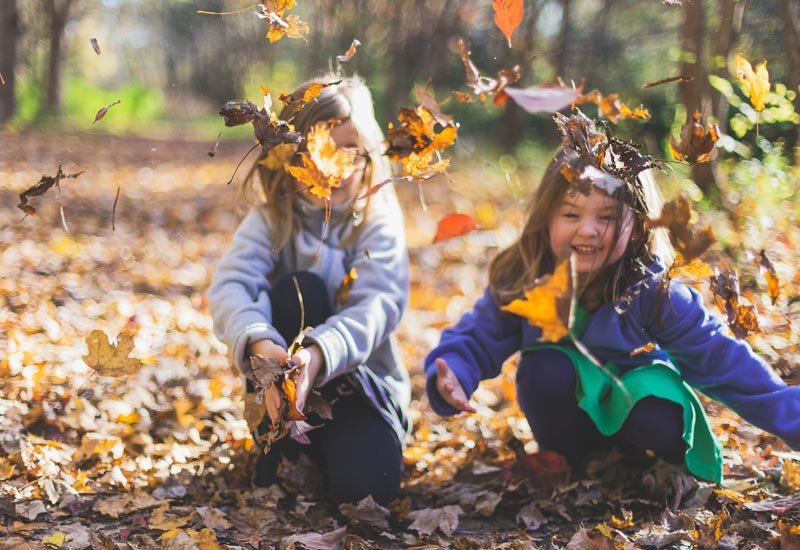
Being natural and undisguised is a virtue, which is the makes everyday life much more relaxed. After all, you can be exactly who you are and who you want to be. But naturalness also means living in such a way that you do not harm nature, in which we all exist together, through your own behavior.
We don't have to live completely naturally, but we must understand that a certain degree of naturalness is good for us. And that is precisely why we should all make sure that we move towards nature and not further away from it.
After all, naturalness is also something, what we adults can learn from childrenif we have lost it somewhat in the course of our lives.
"If you truly love nature, you will find beauty everywhere."
Vincent van Gogh (more at Nature Quotes)
I very much hope that I have been able to help you with this - admittedly unusual - article. Do you have any questions, suggestions or your own experiences with natural or unnatural things that you would like to share? And what does naturalness mean to you? I look forward to your comment!
Stay close to nature,

PS: It's also unnatural to sit in a chair and stare at a computer monitor all day at work. How to organize your Easy on the eyes at the screen I will be happy to explain to you next in the linked article.
References:
- Federal Agency for Civic Education: Man belongs to nature - and changes it, available at https://www.bpb.de/themen/politisches-system/politik-einfach-fuer-alle/332663/der-mensch-gehoert-zur-natur-und-veraendert-sie. [21.02.2024]. ↩︎
- MDR: The man-made world - just under three percent of nature intact (as of 16.04.2021), available at https://www.mdr.de/wissen/wie-der-mensch-die-erde-formt-100.html. [21.02.2024]. ↩︎



